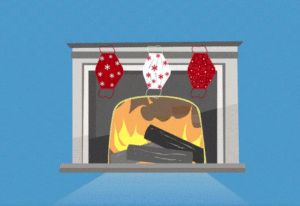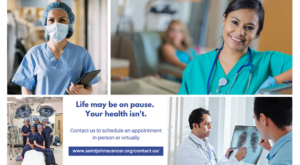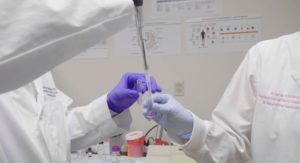About COVID-19
COVID-19 is believed to spread mainly from person-to-person and between people in close contact with one another. The virus is thought to spread through respiratory droplets when an infected person coughs or sneezes. Symptoms include fever, cough and difficulty breathing. A health care provider can give you instructions for seeking care, including options for testing, while minimizing the risk of exposing others.
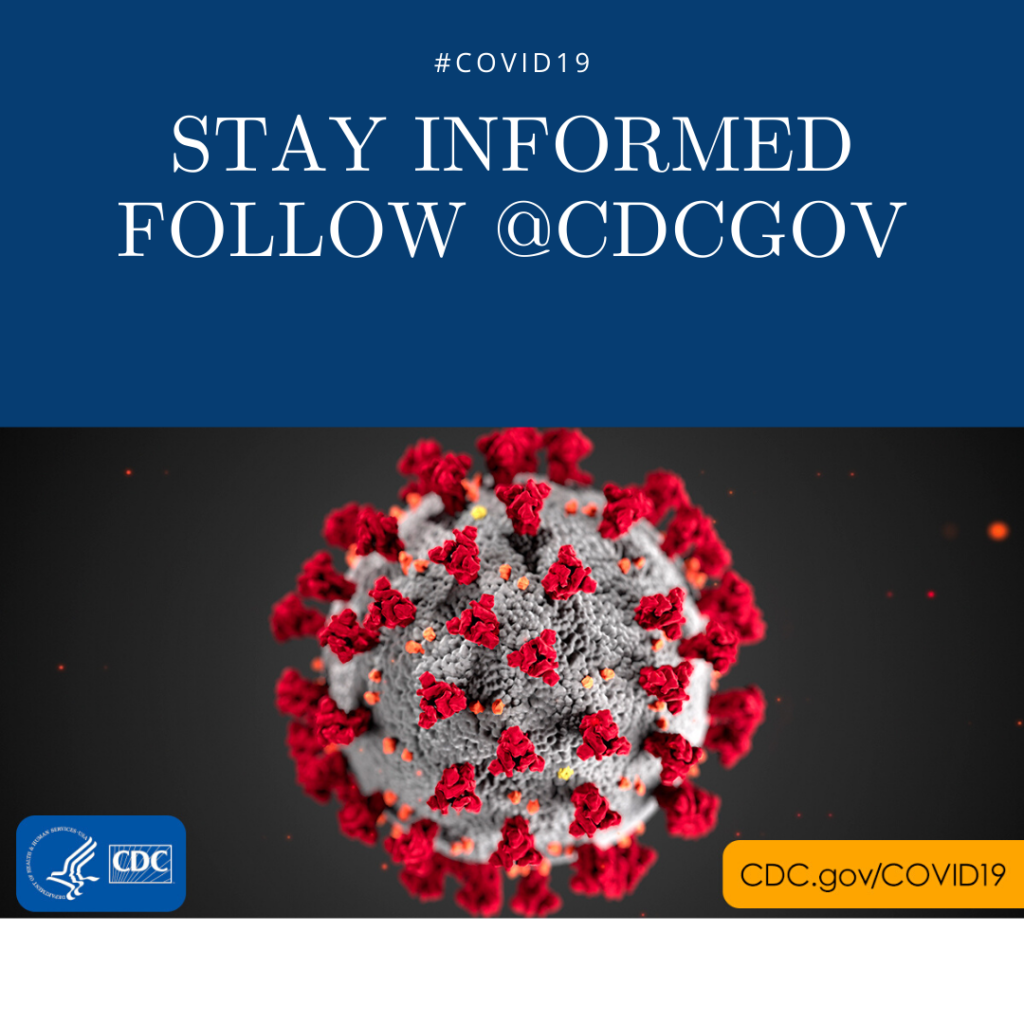
Symptoms
According to the Centers for Disease Control and Prevention, illnesses have ranged from mild symptoms to severe illness and death for confirmed coronavirus disease 2019 (COVID-19) cases.
The following symptoms may appear 2-14 days after exposure:
- Fever
- Cough
- Shortness of breath
*Please note, this list is not all inclusive. Consult your medical provider for any other symptoms that are severe or concerning.
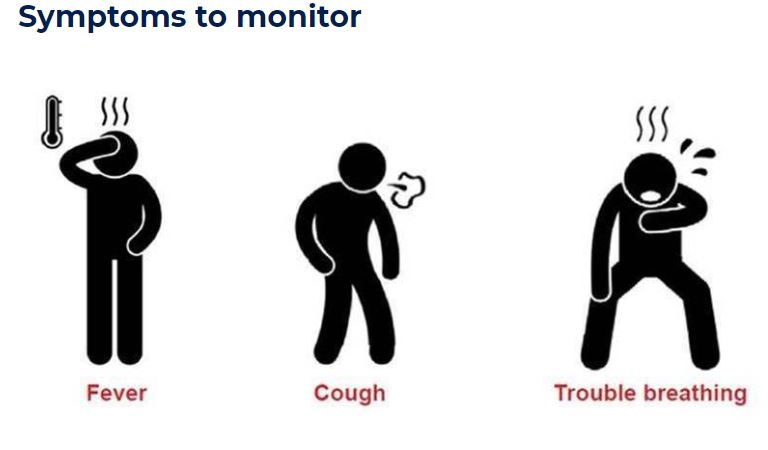
Prevention
You can protect yourself from COVID-19 infection the same ways you protect against the common cold or seasonal flu.
- Wash your hands frequently for at least 20 seconds.
- Before eating
- When your hands are visibly soiled
- After you have used the bathroom, been in public or blown your nose, coughed or sneezed
- Use hand sanitizer that contains at least 60 percent alcohol, if soap and water aren’t available.
- Cover your cough and sneeze with a tissue, and throw your used tissues in the trash.
- Avoid touching your eyes, nose and mouth.
- Stay home when you are sick.
- Wear a face mask, only if you are sick or are caring for someone who is sick.
- Put some distance between yourself and others, especially if:
- Someone near you is sick
- You are at a higher risk of serious illness
- COVID-19 is spreading in your communities
- Clean and disinfect frequently touched objects and surfaces.


